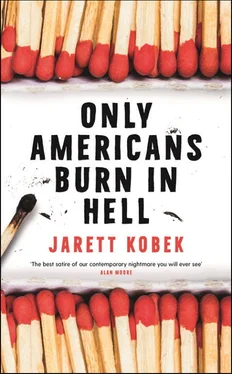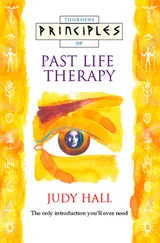And because of that definition, most Serious Novels are so fucking boring that they have zero hope of competing with smartphones. Imagine a very cranky human being who, while riding public transit, gets upset when they witness other people using smartphones.
“No one reads anymore,” laments the very cranky human being. “Look at all these kids using smartphones!”
And you nod your head in agreement, don’t you, reader?
You think it’s ever such a shame that the public is no longer willing to engage with long tedious narratives bound in paper. How terrible you find it that smartphones have killed literacy!
You agree with that crank!
But the problem isn’t the smartphone!
It isn’t the people using their smartphones!
It’s that books got defined down!
There’s one working standard for judging quality!
Is this tedious narrative bound in paper less boring than watching peoples’ slack faces as they ride a crosstown bus?
I don’t blame anyone for using a smartphone to alleviate boredom while riding public transit. I know that pictographic messages about sexual encounters with Santa Claus are slightly less boring than reading novels about Life in Our Time.
So, no, reader, I’m not like that crank.
I don’t blame anyone for getting addicted to their smartphones.
I only blame people for their terrible attempts at reviewing my work.
Vonnegut, Vonnegut, Vonnegut!
He invented the short sentence!
He invented the short paragraph!
He invented jokes!
Chapter Four
Child, Be Strange
Before going to Los Angeles, Celia had left Fairy Land on one previous occasion.
This was when she went to the city of London on the island of Great Britain.
She traveled in the Year of the Sulky Octopus, which roughly corresponded to 1608 AD, 1017 AH, and 5369 AM.
Celia had arrived in the middle of the Little Ice Age, which was a long period of freezing winters and terrible cold.
Celia went to London a few days after Christmas, which was a holiday that celebrated the birth of an itinerant preacher from Galilee who’d promulgated an ideology of love, non-violence, and forgiveness.
Somehow this ideology of love and forgiveness, which was called Christianity, had been transformed into a religion responsible for tens of millions of deaths.
History is so fucking weird.
More Vonnegut!
He invented Jesus!
Prior to Celia’s first departure, Fern had returned with news from a peregrination abroad: Tom a Lincoln , the book by Richard Johnson, had been adapted into a play.
“A play?” asked Celia. “Whatever is a play?”
“Some people are chosen to embody roles around a theme. The chosen people speak words as if they themselves were their embodied roles.”
“You say that they have made a play of my life?” asked Celia.
“Yes,” said Fern.
“Someone will speak as me?” asked Celia.
“Yes,” said Fern.
“I must attend,” said Celia.
Fern could not go to England with her mother.
She’d been away from Fairy Land for about a year.
Whenever Fern returned from a vacation, she’d stay on Fairy Land for at least two years, which was long enough to chase away even the slightest hint of the island’s collective depression.
One of Fairy Land’s more aggressive women was drafted into service as Celia’s escort.
Her name was Rose Byrne.
When the women of Fairy Land had banished or murdered all of the island’s men, Rose had been one of the more violent and vocal agitators.
Rose had argued against banishment. She wanted to kill all the men.
She hadn’t killed all the men, but she had murdered more men than anyone else on the island.
She’d cut off their heads.
She’d hung them from gibbets.
She’d boiled them in oil.
She’d drowned them in ale.
She’d crushed them with rocks.
She’d buried them in sand, covered their heads with honey, and let their skulls be picked clean by ants.
About two centuries before Fern first left the island, Rose began taking her own trips away from Fairy Land.
Rose’s trips abroad were very short affairs.
She only left long enough to sail a skiff to a distant land, get blotto stinking drunk, and then brutalize unsuspecting men in dirty taverns.
But the violence tourism had taught Rose how to travel, which made her useful as Celia’s companion.
Celia was the Regnant Queen.
She wasn’t traveling by boat.
She did some faery bullshit and opened a magic window to London.
The magic window opened in Southwark, on the south side of the river, between the bear-baiting ring and St. Saviour’s church.
A bunch of awful London people stood around, gaping at Celia and Rose Byrne.
The awful London people had seen a lot of things in their miserable London lives, but they’d never witnessed the spontaneous materialization of a fairy queen and her disagreeable companion.
One of the awful Londoners was a drunken scoundrel.
He only had one eye.
The scoundrel began dancing like a chicken, in the hopes that Celia or Rose would give him coin for alcohol.
“Let us anon, lady,” said Rose. “Before I rip this one’s arms from his shoulders and beat him about the head with his own appendages.”
“Come on, missus,” said the scoundrel. “Come on, I’m a righteous chicken and I’m a-dancing for you!”
Before Fern left England, she’d put a faery glamor on the location where the play of Celia’s life would be performed, which was the Hall at Gray’s Inn.
Gray’s Inn was one of the four Inns of Court, which were places where upper-class families sent their sons to train as barristers.
A barrister was a fancy lawyer.
The inmates of Gray’s Inn were learning to exploit England’s ad hoc legal system.
This training helped the inmates’ families abuse the poor and retain an iron hold over the country’s unjust social structure.
It was good work if you could get it.
Which you couldn’t.
Because you were poor.
Celia cast a spell.
The spell created a long thin tendril of magical light, like a ropey strand of saliva, that led from the faery glamor on Gray’s Inn to Celia’s location in Southwark. The tendril snaked through the streets of London, creating the most effective route to Gray’s Inn.
It was a little like getting directions from a smartphone, but without supplying every stupid fucking detail of your sad little life to the sociopaths who operate megalithic American corporations.
Celia and Rose left the Londoners and followed the tendril.
“Come on, missus,” cried the one-eyed scoundrel after Celia and Rose. “Come on, don’t you want to pluck me old feathers? Don’t you want to tug on the old beak? I’ve got some nice meat on me old chicken bones!”
The tendril led Celia and Rose over London Bridge.
There were human heads on spikes attached to the bridge’s southern gate.
Celia and Rose passed through the gate, taking no notice of the human heads, which were in various stages of decomposition. It was nighttime, so the heads weren’t very visible, and, anyway, a bunch of men’s heads on spikes was nothing new to the women of Fairy Land.
London Bridge was lined with buildings and shops on either side, and the passage was narrow, and as Celia and Rose followed the tendril, they often found themselves in darkness illuminated only by the tendril’s light.
The tendril brought Celia and Rose into Holborn, which was mostly countryside in the greeny northwest of the city.
The tendril brought Celia and Rose through the Holborn gate of Gray’s Inn.
There was a crowd of people, all headed in the same direction as Celia and Rose.
Читать дальше









![Brian Thompson - A Monkey Among Crocodiles - The Life, Loves and Lawsuits of Mrs Georgina Weldon – a disastrous Victorian [Text only]](/books/704922/brian-thompson-a-monkey-among-crocodiles-the-life-thumb.webp)


